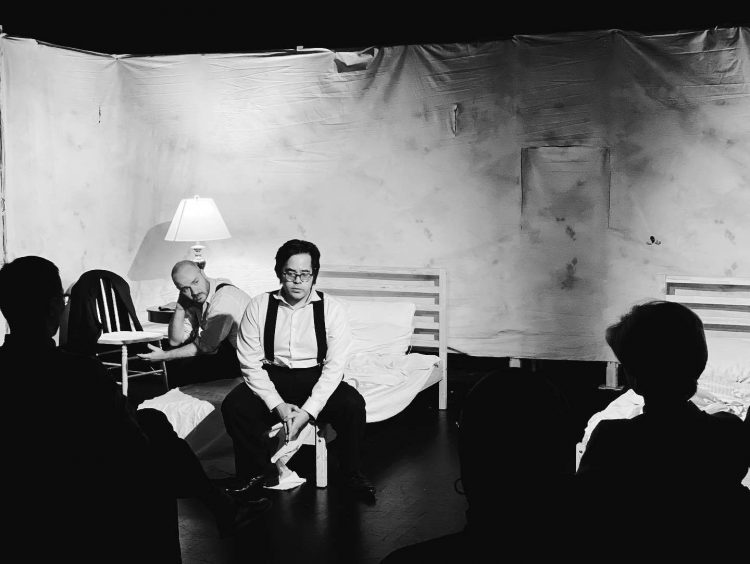Precision is a quality we expect of detectives and surgeons, not playwrights. Yet it’s precisely what makes Pinter’s plays so unnerving. The pregnant pauses like labor pains at the birth of some monstrous crime. The forensic insistence on minute detail, right down to the crumbs of an Eccles cake. As if each crumb were evidence of some unspoken menace—some horror so inexpressible that the only appropriate response is to describe the wallpaper. A very English response to fear.
The Englishness, the precision of his plays makes them hard to pull off in a land that favours emotional “truth”, Meisner technique, whose idea of theatre is as far removed from Pinter’s as Danny and the Deep Blue Sea is from The Dumb Waiter. Which is why I jumped at the chance to see Stairwell Theater’s revival of the latter. And in short, I was not disappointed.
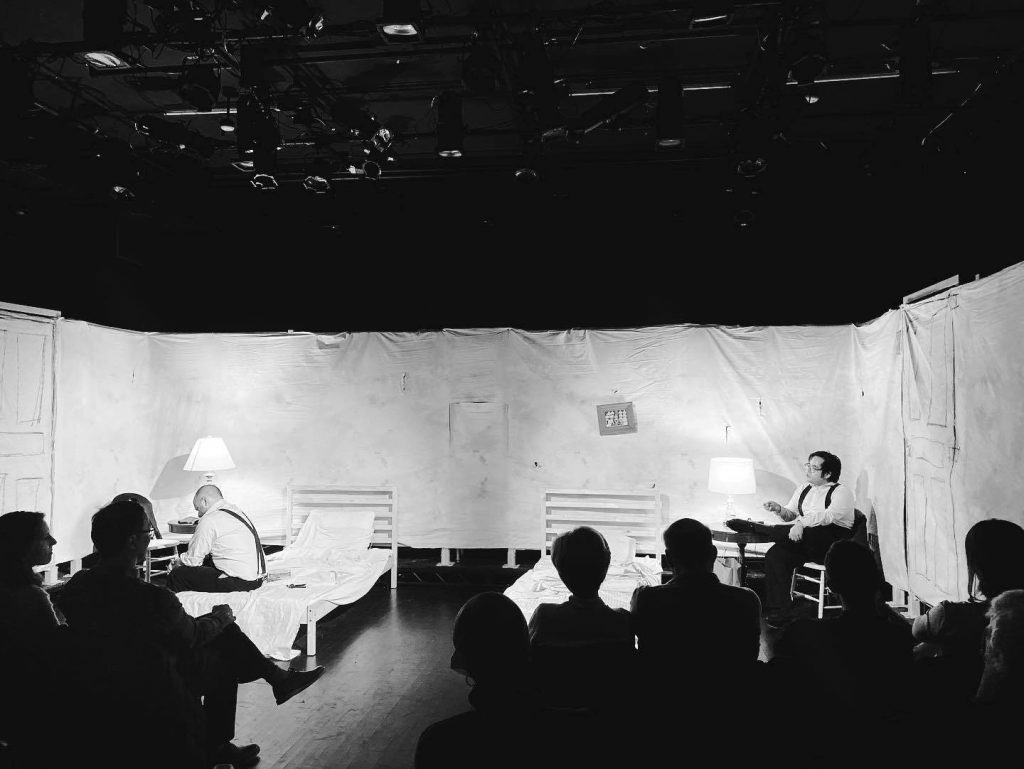
It was a Pinteresque experience from start to finish—disorienting, suggestive, startling at times, at times humorous, even grotesque, but never, ever predictable. Take, for example, the mere act of entering the lobby of 122 Community Center. A porter putting on a British accent informs you that the theatre can be accessed through a gate at the side of the building. Is he with the theatre? If not, why the accent? And is finding the side gate and navigating the alley and climbing the nondescript staircase part of it? Is this the stairwell the company is named for? Or does the building management prefer off-off riff-raff to take the servants’ entrance?
Whatever the reason, the circuitous route to your seat has the effect of putting you in much the same state as Ben and Gus in The Dumb Waiter: Wondering just what the devil is going on.
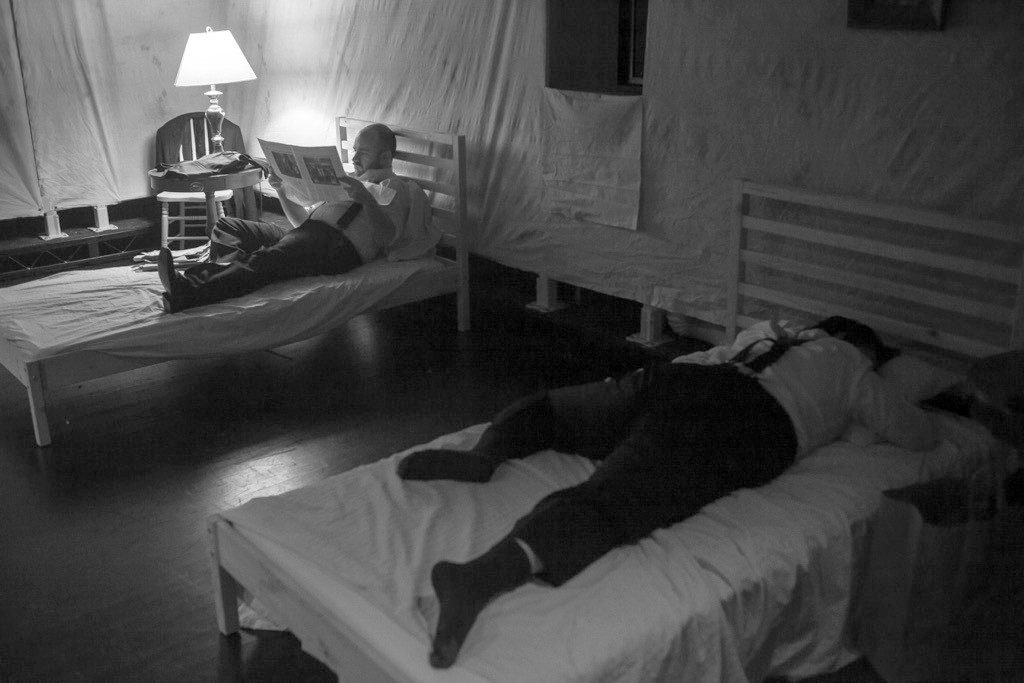
As you settle in, Ben and Gus lie abed, reading and sleeping, respectively. Oddly cheerful organ music emanates from behind the set. And what a set it is. Designer Andy Sowers has stretched a filthy canvas across a frame of steel and chicken wire to create walls that breathe and tremble and clang and—when backlit by lighting designer Ryan Castalia—gleam like a rib cage exposed to a deadly dose of X-rays.
In this mouldering subterranean chamber, two men casually await the appearance of a third who, in accordance with instructions recounted in one of the play’s funnier moments, will be shot on sight. It’s a setup familiar from many a gangster movie (most notably Pulp Fiction), and the dynamic between Theodore Caywood’s level-headed Ben and Anthony Leung’s bumbling Gus is pure Abbott and Costello. Given free rein by director Sam Gibbs, Caywood and Leung abandon themselves to these exaggerated roles and revel in the rigorous cadences and hieroglyphic pauses of Pinter’s dialogue. Yet the whole exercise would remain fairly conventional if not for the opening, on the wall, of a little window onto the unknown.
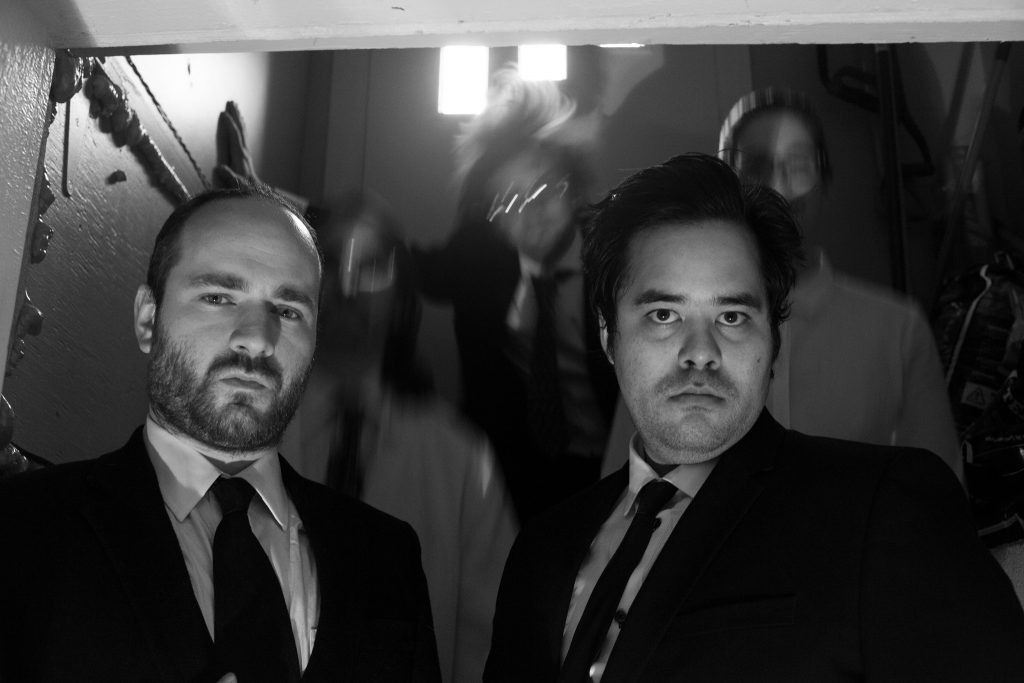
The dumb waiter. What, if anything, does it signify? A tiny elevator descending from above, delivering handwritten orders impossible to fulfill. Divine commandments, perhaps? Or something less metaphysical, more class-conscious? Tightly lit in a rectangle of light, the dumb waiter functions here as a technological oracle, a gleaming, mechanical Bocca della Verità. And what about the speaking tube that descends into the room like a severed trachea? What is that, exactly? Or the actors milling about in surgical masks, their shoes sometimes visible in the gap between frame and floor? Or the chain-link fence closing in behind us as if to say “You’re next”?
The chief merit of Sam Gibbs’s direction is that he clearly grasps the essence of the Pinteresque: a nebulous threat defined with surgical precision in terms of what it is not. A theatrical via negativa. Accordingly, he answers none of our questions, choosing instead to use all the theatrical means at his disposal to augment and magnify our sense of dread and disorientation, of something wicked this way coming. Of course, the risk of raising the stakes so high is that it makes a satisfactory payoff nearly impossible. And the backlight effect notwithstanding, the climax does feel somewhat rushed and underwhelming. It’s a problem that would most likely work itself out in a longer run.
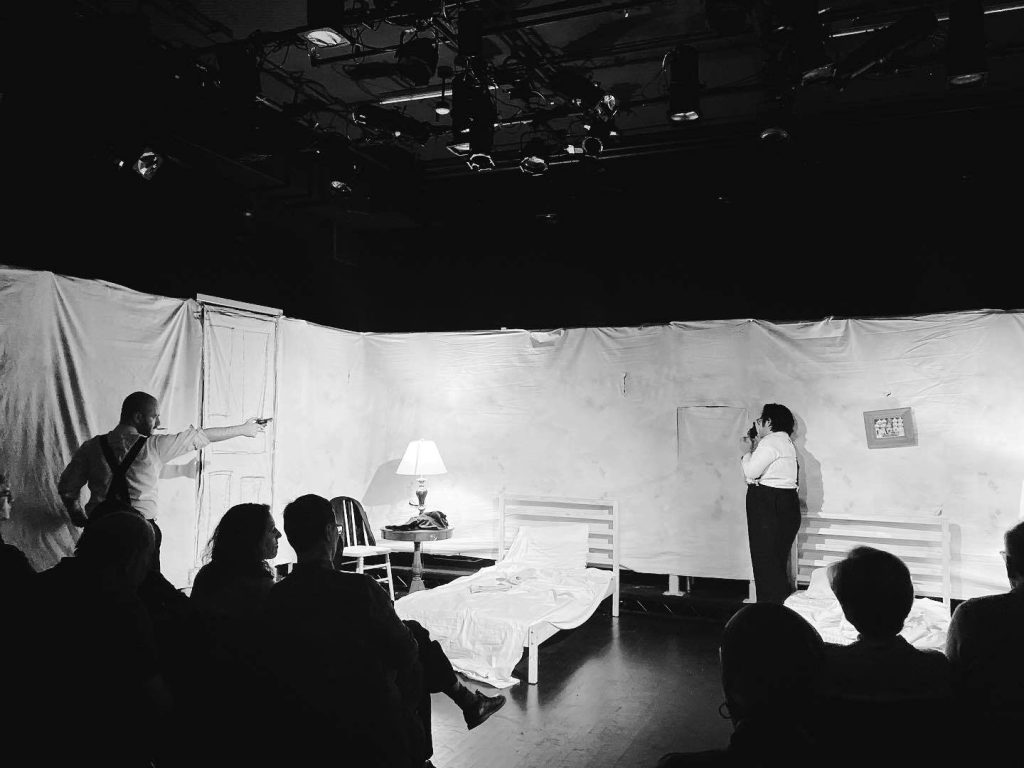
But alas, “The Dumb Waiter” closes today, after just a single weekend. So much work, so many ideas, such a worthy effort, and just like that—gone. It’s perhaps the most frustrating thing about reviewing off-off-Broadway. Even a name like Pinter can ill afford a decent run in this town.
Fortunately, Stairwell Theater shows no sign of slowing down. With past productions ranging from Shakespeare’s Macbeth to Alfred Jarry’s Ubu, this brave little company and so many like it continue to defy the laws of market-driven economics, bringing edgy, experimental theatre to a financially besieged city.
For more information visit stairwelltheater.com

